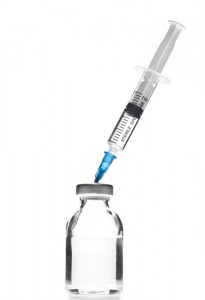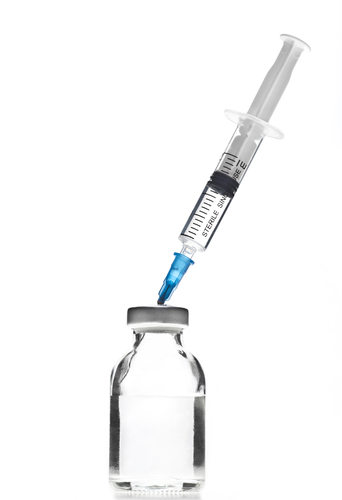 The PeaceHealth Southwest Medical Center in Vancouver, Washington is pioneering the use of Botox injections in breast reconstruction surgeries for women who have undergone mastectomies in order to reduce recovery pain. Conducted by the chief of plastic surgery of the center, Dr. Allen Gabriel, MD, the experiment was part of an effort to reduce the pain associated with breast reconstruction, especially when the procedure involves tissue expansion.
The PeaceHealth Southwest Medical Center in Vancouver, Washington is pioneering the use of Botox injections in breast reconstruction surgeries for women who have undergone mastectomies in order to reduce recovery pain. Conducted by the chief of plastic surgery of the center, Dr. Allen Gabriel, MD, the experiment was part of an effort to reduce the pain associated with breast reconstruction, especially when the procedure involves tissue expansion.
Gabriel worked in collaboration with G. Patrick Maxwell, MD to perform a small randomized clinical trial with 30 patients that showed Botox’s effectiveness in reducing painful muscle spasms after reconstructive breast surgery. Traditionally, after the removal of a part of the breast tissue during a mastectomy, doctors implant an expander between layers of the chest muscle. It works gradually in expanding the skin and tissue in order for a silicone or saline breast implant to be more easily inserted, and leading to a more aesthetic and natural-looking appearance.
With the Botox injections, women not only felt less pain, but they also experienced full tissue expansion more quickly, compared to the group who received placebo. The results of the trial were presented by Dr. Gabriel at the International Society of Aesthetic Plastic Surgery, and the medical team has been successfully using the injections in multiple reconstructions since then.
“Many patients have been afraid of expanders because they’ve heard the procedure is so painful,” explained Dr. Gabriel. “Now that Botox can reduce their discomfort, women should be more confident about their recovery when choosing the expander/implant-based reconstruction.”
[adrotate group=”3″]
Susan Pagel was one of Dr. Gabriel’s patients who received the Botox injections during the reconstruction procedure, and she was able to receive breast implants a few months after the tissue expansion. “While some pain and discomfort were a part of my experience (as one would expect with any such invasive surgery), the pain I had was managed easily with anti-inflammatory medications,” she said.
“Because that was the case, my body’s daily energy was directed into my recovery rather than into handling pain. I healed remarkably well, and I think this was due in large part to the fact that I was not constantly managing severe pain,” the patient added. “Being able to go back to my life healthy, healed, and looking like my usual self in such a short time was due, I believe, to the fact that my body was not consumed with pain following my surgeries.”

